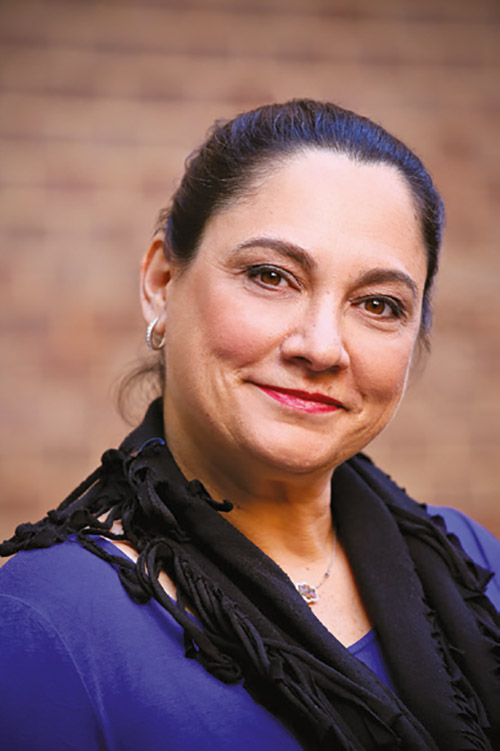


The Jewish Orthodox Feminist Alliance (JOFA) will mark its 10th international full-day conference on Sunday, March 7. Held every three to four years since 1997, over 1,000 Orthodox attendees from various walks of Jewish life congregate at the conference and attend panels and classes facilitated by leaders in their fields. Engaging in both formal and informal discussions that address cutting edge topics on Halacha and community, the goal is to walk away with an empowered perspective on Jewish feminist issues and a sense of community.
Due to COVID, this year’s conference is pivoting to an all virtual platform, enabling people from all over the world to access the event.
The conference’s theme this year, “Building a Vibrant and Equitable Orthodox Community,” is fitting, considering how dramatically the world changed throughout 2020. “Some topics,” said JOFA Executive Director Daphne Lazar Price, “are more contemporary, having come to the forefront because of the state of the world in 2020.” For example, JOFA will include lectures such as “Intersectionality in 2021” as well as “Birth Justice and Maternal Health.” The latter includes panelist and Teaneck resident Paula Eiselt, who is working on her second documentary on those issues.
Over the past few years, JOFA has hosted both in-person and virtual events, so it was unexpectedly prepared for the current virtual migration. “With COVID, we shifted rather nimbly,” noticed Lazar Price. “We already had the history and mechanisms to host these online programs, which has expanded our reach across the globe, and helped to build community in new ways.”
These two types of events offer “a distinctly different kind of conversation,” noted Lazar Price. An in-person event remains local, while the latter offers expansion and insight through the windows of other communities across the globe. “It’s exciting to have speakers and participants from all over the world join in the virtual conference in a way that might not have happened otherwise,” said JOFA President Pam Scheininger.
The conference is organized into four themes: Education, Advocacy, Leadership and Ritual. “We align them with the different silos of activity that JOFA focuses on,” explained Scheininger. In order to acknowledge how the world has changed over the course of last year, the Advocacy track will be broader, including elements of advocacy along with elements of reflection. “We’re looking forward to being able to focus the sessions in that type of way,” she added. Related topics include “Obstacles and Opportunities: How COVID has Changed Women’s Role in Mikvah/COVID and Tefillah.”
Although the 2021 conference is not being held in person, JOFA will capture the feel of being together in the same room. While some sessions are pre-taped, the Q&As will be live. “Affinity Lunches,” or interactive lunchtime sessions, will also be offered this year. Some topics slated to be covered include a conversation with Neshama Carlebach, Raising Feminist Sons, and Women in Health Care. Additionally, the intergenerational demographic will be fostered through a young professionals meetup with JOFA founder Blu Greenberg and a special session for high school students.
“Upon attending conferences, we all look forward to those post-lecture ‘hallway conversations,’ inevitably sparked by a pressing topic or discussion as we hop from session to session. Sometimes, we bump into a former colleague or community friend. At the virtual conference, JOFA will maintain that connected vibe by keeping the Zoom rooms open after each session.
Attendees will have the opportunity to continue the communication and interact via chat or in person if they choose to stay in touch. This will also contribute to this ‘sense of community,’” Lazar Price remarked.
Recently, JOFA ran various online, women-identifying-led tefillah groups, which were open to all people from around the world. It also hosted Megillat Ruth readings, led by both Gen Zers and other readers from all over the continent, and Megillat Esther readings on Purim.
Scheininger believes that “no matter how or when we come out of this, it is going to shift the manner in which people interact with each other, and with information.” The virtual platform has “given us an opportunity to see our resources through the eyes of a virtual audience,” she continued. Through this lens, JOFA is adapting to the times and taking measures to refine the website and update resource material.
“There is clearly much more work to be done,” noted Scheininger, “but these conversations have definitely shifted in a significant and meaningful way, which is wonderful to see.”
For more information, or to register and join the conversation, please visit https://www.jofa.org/conference2021
By Chaya Glaser










